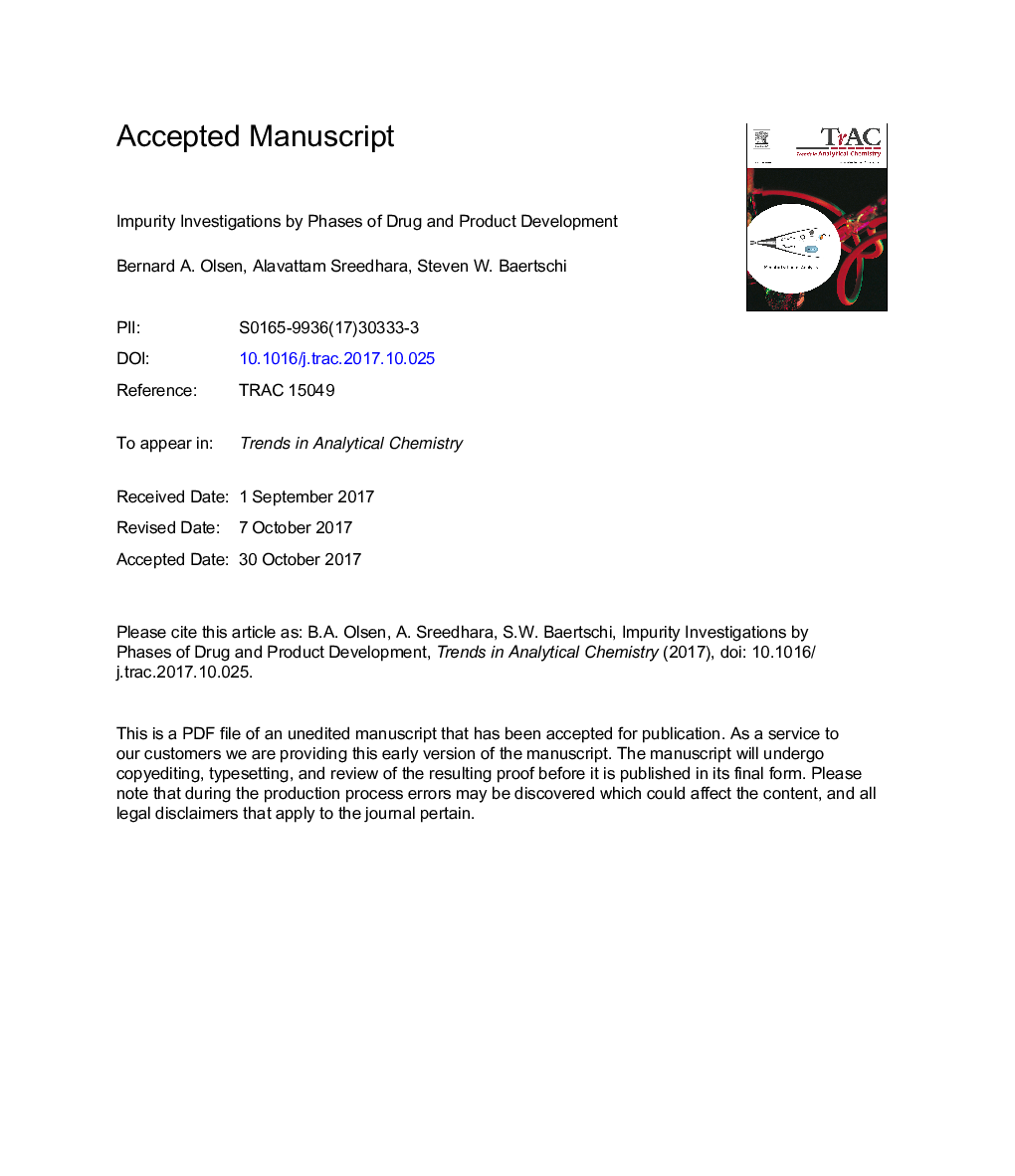| Article ID | Journal | Published Year | Pages | File Type |
|---|---|---|---|---|
| 7687820 | TrAC Trends in Analytical Chemistry | 2018 | 22 Pages |
Abstract
Thorough knowledge and control of impurities is an expectation for the registration of pharmaceuticals. Actual and potential impurity investigations are phased during drug development to acquire the appropriate information necessary to ensure drug safety from the standpoint of patient exposure to impurities. Regulatory expectations and common practices for the timing of impurity investigations during development are discussed. Investigations for synthetic drug substances include process-related impurities such as intermediates, by-products, mutagenic impurities, residual solvents, and elemental impurities. Stress or forced degradation studies are used to investigate degradation impurities for both drug substances and products. The goals of stress studies conducted at different phases of development are discussed. Protein products have related considerations for impurity investigations, but the nature of impurities and technologies used for determining them can be quite different compared to classical synthetic molecules. Considerations for protein product impurities are discussed with an emphasis on process impurities in monoclonal antibodies.
Keywords
Related Topics
Physical Sciences and Engineering
Chemistry
Analytical Chemistry
Authors
Bernard A. Olsen, Alavattam Sreedhara, Steven W. Baertschi,
